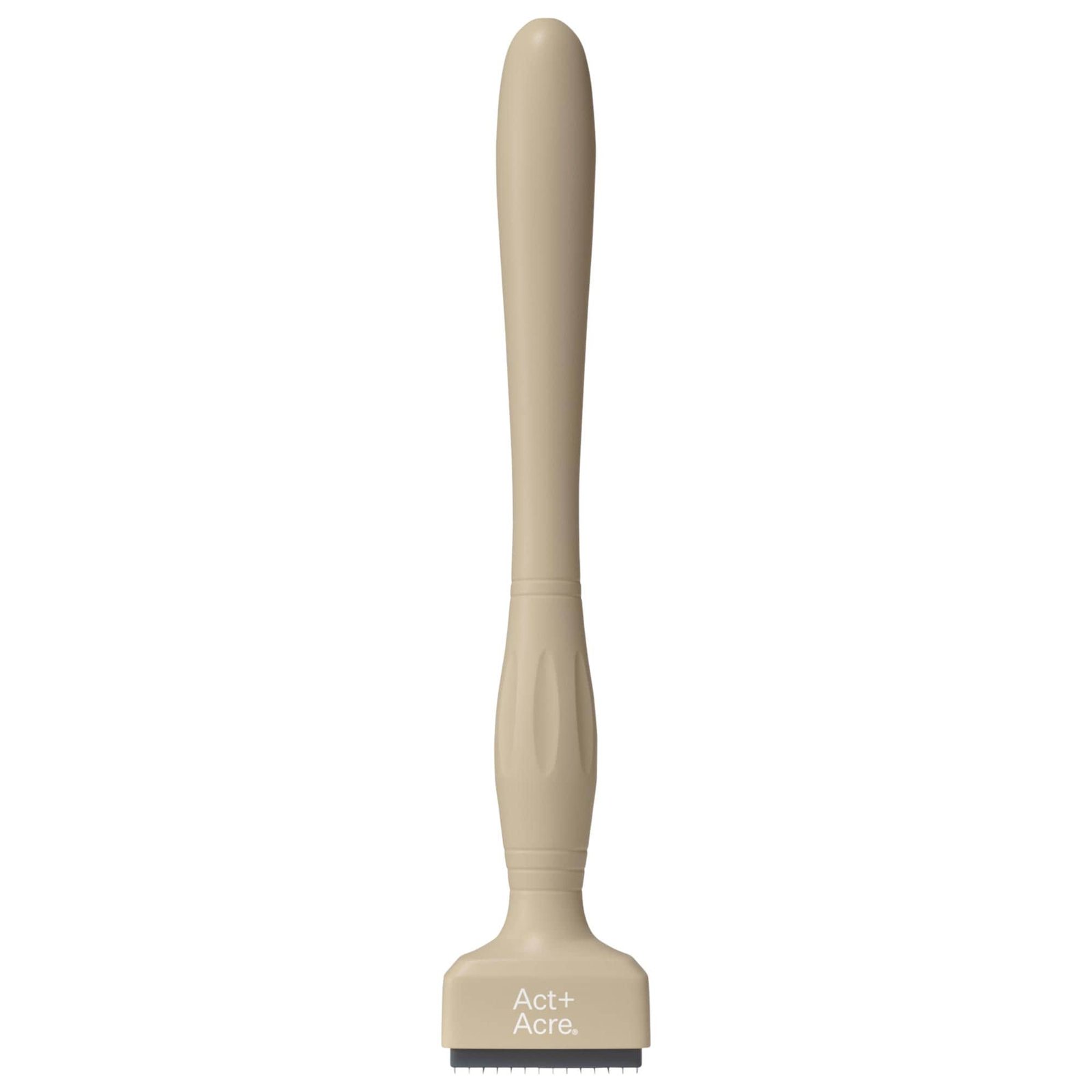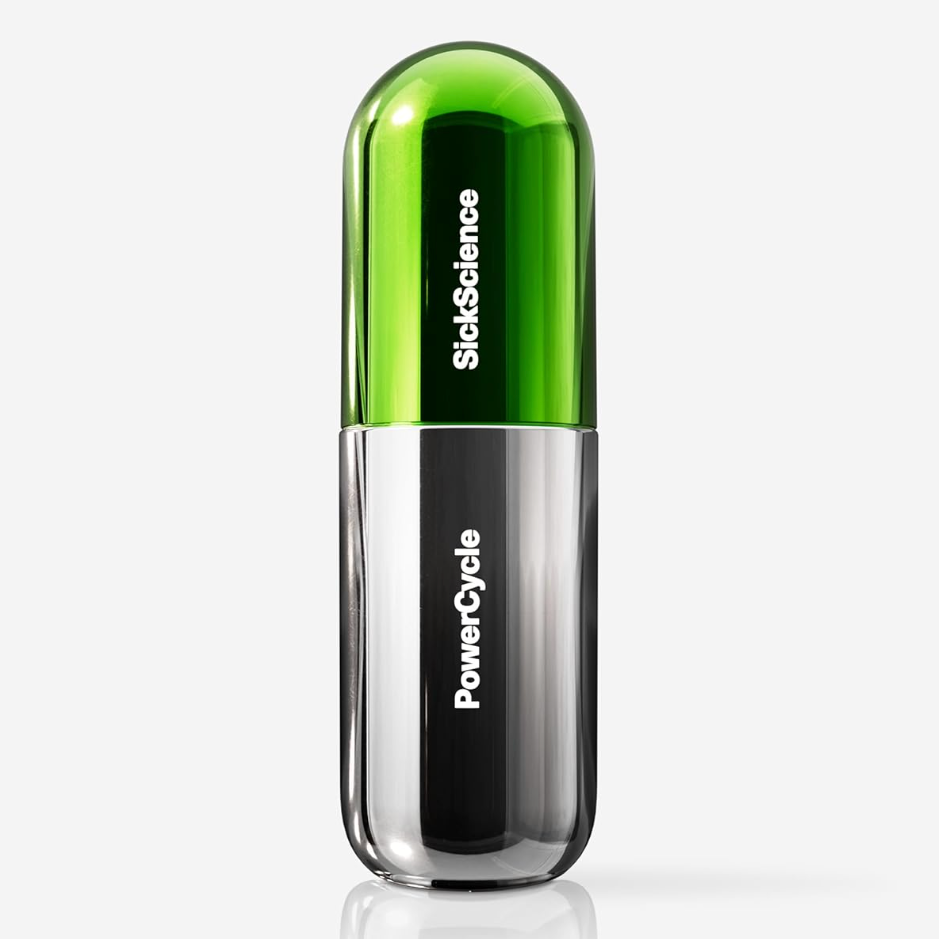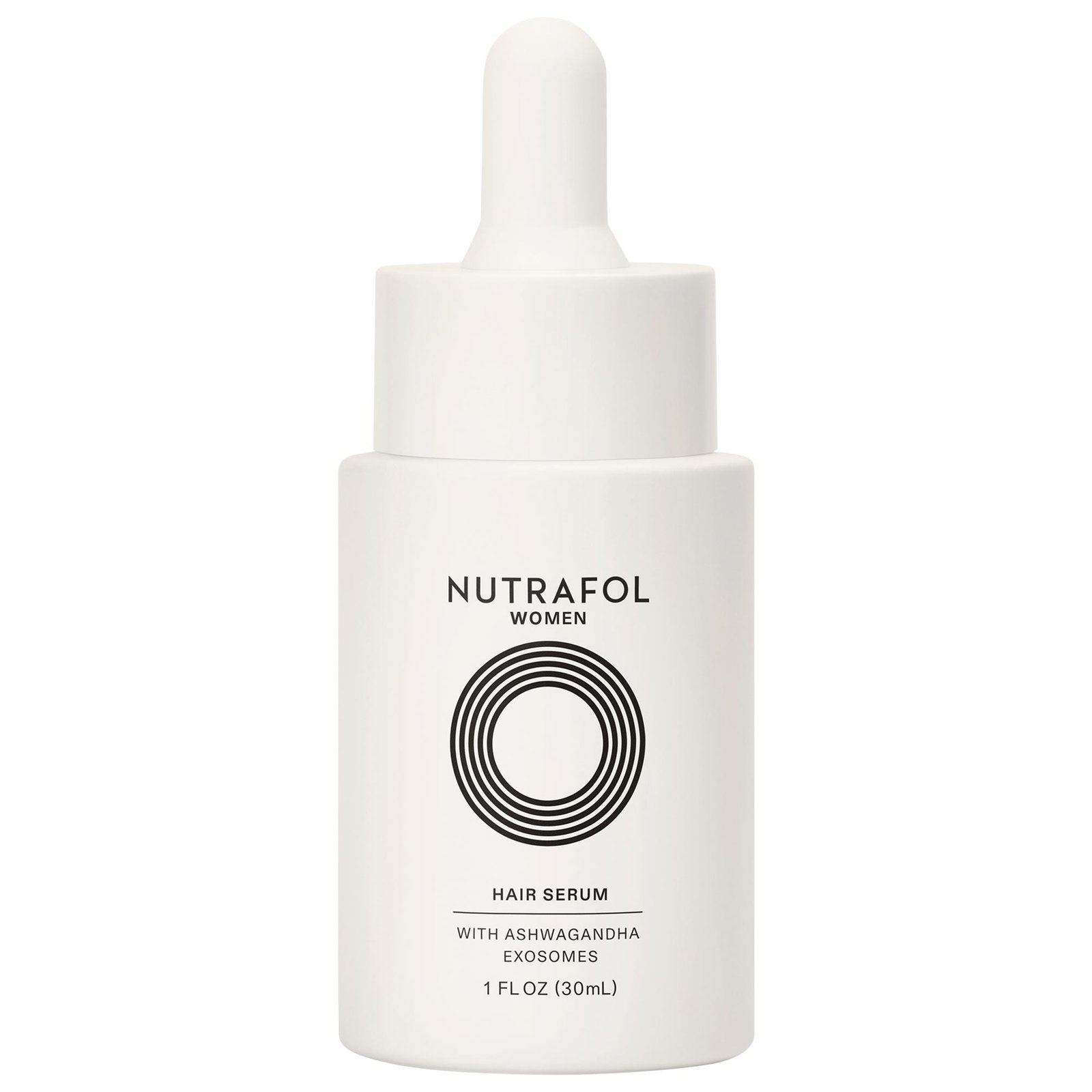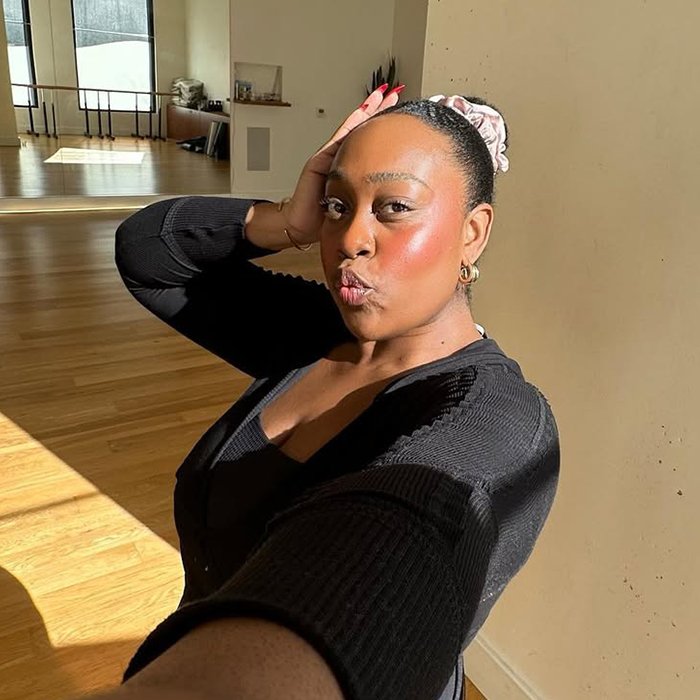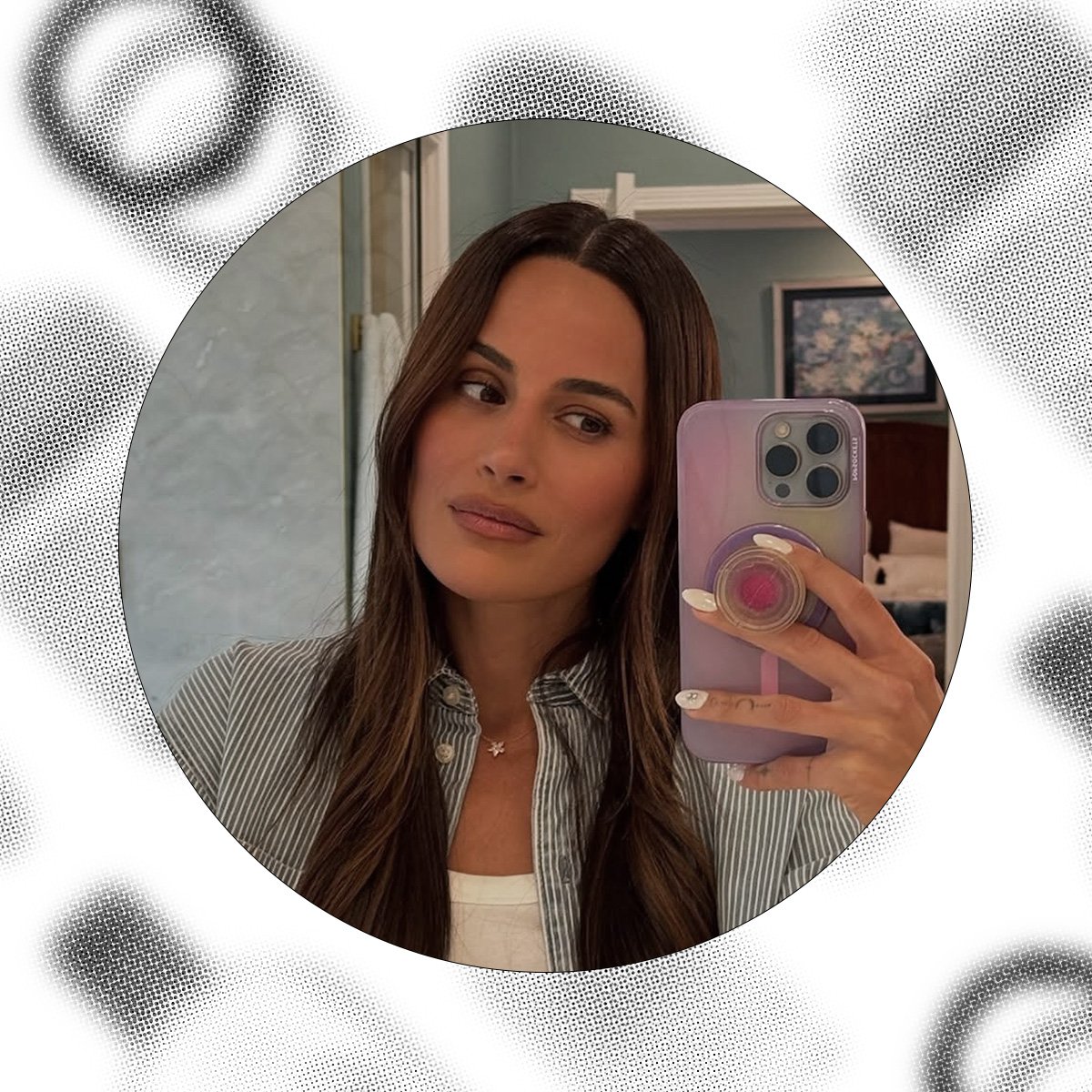I’ve always had fine hair. Over the years, I’ve fluctuated between despising it and accepting it, but it wasn’t until my mid-20s that I sought to do something about it. Back then, I was experiencing some newfound health challenges—things like crashing energy levels, weight gain, and abnormal hair thinning. After consulting my doctor, I was diagnosed with a hormonal condition called polycystic ovarian syndrome (PCOS). Unbeknownst to me, I was dealing with PCOS symptoms for years, and my noticeable hair thinning was just one of them.
I immediately began investing in scalp and haircare products to A) nurture the hair I had and B) encourage new growth. To this day, I use hair masks at least once a week. I test growth-boosting scalp serums. (So far, this one is my favorite.) I even use tools such as a scalp massager to boost circulation while I shampoo.
Recently, though, an entirely unexplored category of scalp and hair serums hit my radar, and I had to wonder: Was I missing out on a potential solution to my thin-hair struggle this entire time? I’m talking about exosome serums. I was already familiar with exosomes in relation to skincare, as they’re used in facial serums, creams, and treatments to provide anti-aging, anti-inflammatory, and wound-healing benefits. Touted by the internet (and experts!) as an effective skincare ingredient, exosomes are, apparently, just as effective when it comes to the scalp and hair. Since I’m obsessed with my scalp and hair, I knew I needed to learn more, so I reached out to a leading expert. Ahead, learn everything I discovered about exosomes and how they can thicken fine hair.
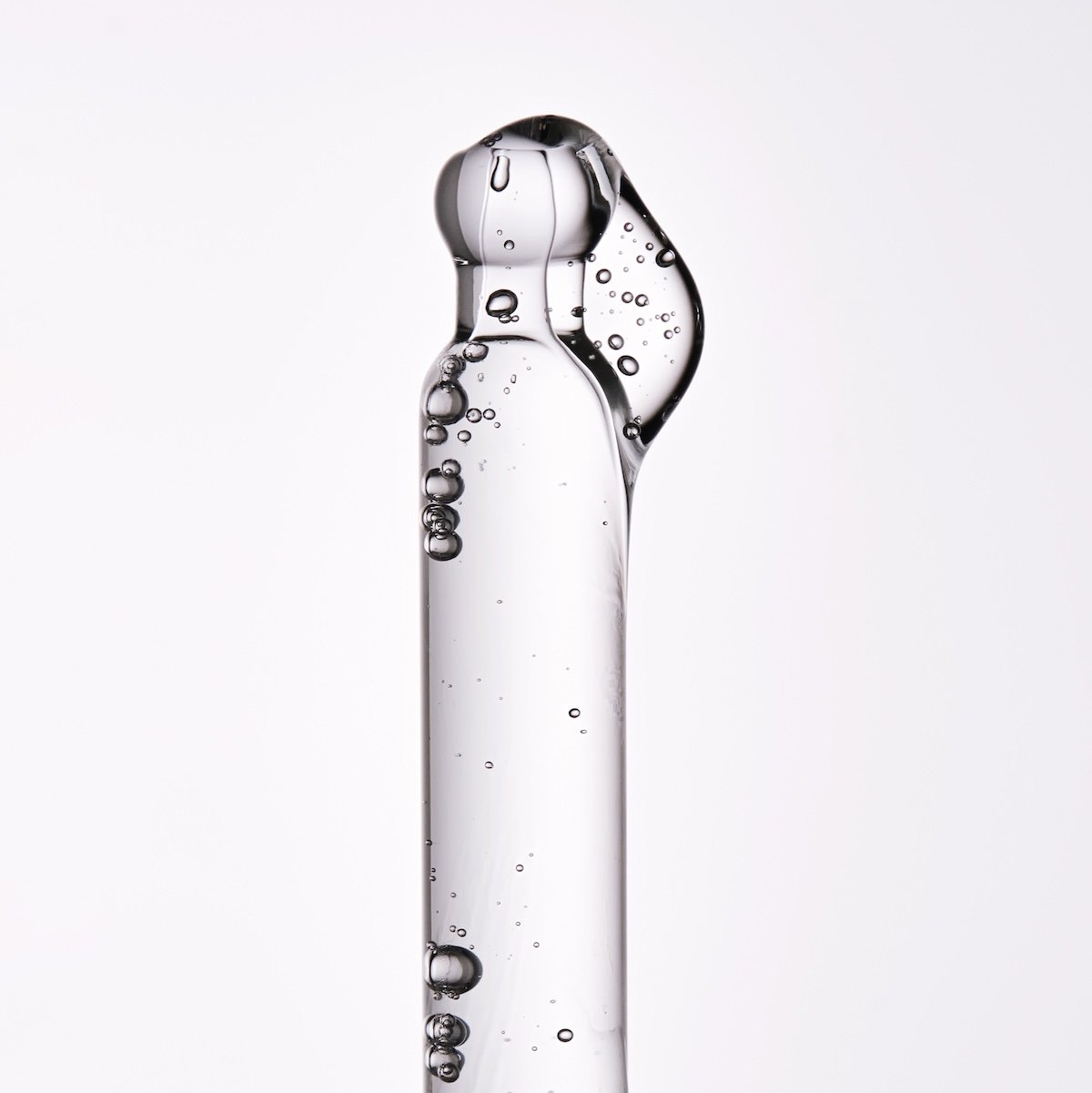
(Image credit: Getty Images)
What Are Exosomes?
“Exosomes are vesicles secreted by cells that contain growth factors, RNA, mRNA, and other goodies,” Geeta Yadav, MD, board-certified dermatologist of Facet Dermatology, previously told Who What Wear. “You can think of them almost like email—when cells ‘send’ exosomes, the material inside the exosomes delivers important messages to cells throughout the body, giving them information and telling them to do things.”
The thing that they would theoretically be telling the scalp to do is activate and proliferate hair follicles, but is that an accurate representation of how they work? And if so, how effective are they? To answer these questions, I spoke to a leading authority: Rafael Gonzalez, PhD, JuveXO’s chief science and development officer and an expert in cell biology, health, and regenerative medicine.
“The cell is the most important and fundamental aspect of life,” he says. “Every single cell in your body communicates with its neighbors.” While some communication is direct, meaning cell-to-cell communication, there’s also a need for “long-distance” communication, and that’s where exosomes come in. “The term ‘exo’ means outside, and then a ‘some’ is a body,” he says. Thanks to a protective bilayer, these vesicles travel to deliver their bioactive “messages” or “signals” to other areas of the body, initiating critical processes. While they can deliver messages that benefit the health and appearance of the skin and hair, the potential uses of exosomes go far beyond aesthetics. In fact, scientists are researching the implications of using exosomes in medical treatments.
How Can Exosomes Benefit the Scalp and Hair?
Exosomes, while new to me, aren’t new to the aesthetic industry. They’ve been used in professional clinics and as part of in-office treatments for some time. “They’re especially beneficial for use post-procedure to help expedite and improve skin recovery,” Yadav told Who What Wear. “Because they are not cells but material from cells, they’re compatible with all individuals [and] skin types.”
A perfect example of this is hair transplants. Gonzalez says in some cases, up to 50% of engrafted hair follicles are lost during and after a hair transplant. However, when exosomes are involved, engrafted hair follicles are more viable, and the average healing time shortens.
Outside of hair transplants, patients who have undergone exosome hair treatments have seen thicker, fuller, and healthier-looking hair. That’s because exosomes can actually wake up dormant follicles and encourage new growth. So while there’s no question that exosomes can benefit the scalp and hair, you’ll want to seek a professional treatment for dramatic results. Although it’s possible that OTC exosome-based products can be effective, Gonzalez says it’s hard to say how quickly, how much, or even for whom they’ll work because they aren’t studied, regulated, or stored in the way that professional exosome treatments are.
Take JuveXO, for instance. The company, which specializes in exosome rejuvenation, is based on intensive research, a high-tech formula, specialized application, and strict storage and shipping standards. Its formula includes exosomes as well as human growth factors, not only to stimulate but also to proliferate hair growth. (Here’s how you can find a provider near you.)
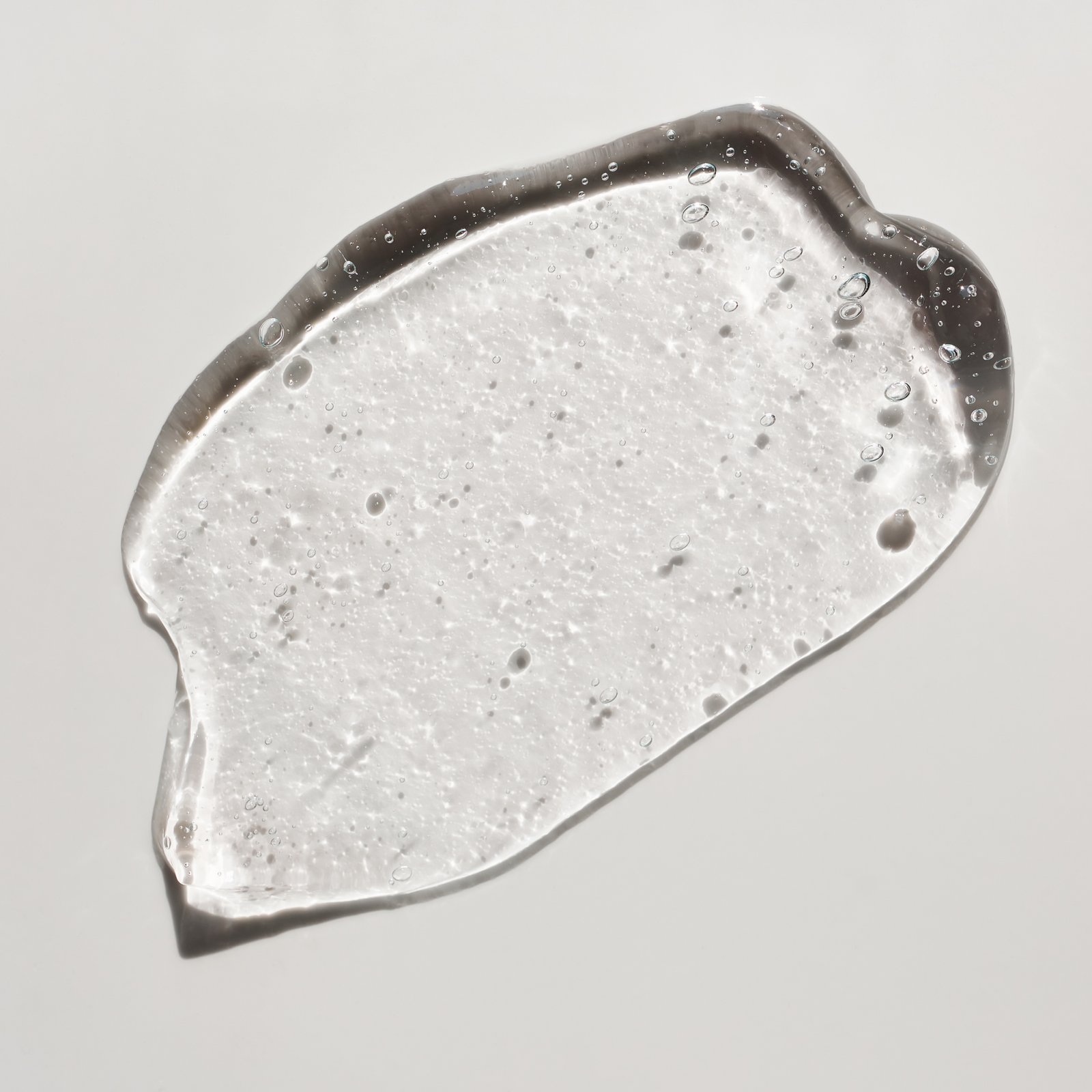
(Image credit: Getty Images)
Are Over-the-Counter (OTC) Exosome Scalp & Hair Serums Effective?
The short answer is maybe. Gonzalez says storage and stability are major considerations, as live exosomes often need to be kept frozen to ensure efficacy. When OTC exosome-based beauty products are shipped and stored, “There’s often too much temperature variance for there to be what’s called viable exosomes, meaning live exosomes in these types of topical products,” he says. “It’s really, really difficult.”
It’s also worth noting that the efficacy of OTC exosome-based beauty products could have something to do with the other ingredients they contain. Many scalp and hair serums that include exosomes also include peptides, caffeine, and other hair-stimulating ingredients. It might be these, rather than the exosomes themselves (especially if they’re not stabilized), that are creating a difference.
Plant vs. Animal Exosomes
Then, there’s the plant-versus-animal issue. OTC exosome-based beauty products are often made with plant exosomes rather than animal ones, and Gonzalez says that makes them less effective. “When we grow cells in vitro, meaning in a petri dish, we cannot use plant-based signals,” he says. “We are not plants. That’s number one. Remember, a plant has a cell wall, going back to your basic biology, and we do not have a cell wall. … It cannot be as beneficial as an animal-based product.”
That’s why Gonzalez recommends researching an OTC exosome-based beauty product before purchasing it. He recommends going through the following checklist and answering as many questions as you’re able to. “Unfortunately, we are in an industry that a lot of people won’t give you that information, because it might be proprietary,” he notes.
- What other, beneficial active ingredients are present in the product?
- What percentage of exosomes is in the product?
- Are the exosomes animal- or plant-derived?
- How is the brand/company stabilizing the exosomes?
It’s also worth noting that vegan beauty consumers may prefer plant exosomes regardless of this information. Nevertheless, if you’re interested in using OTC exosome-based beauty products (of any kind) for hair thinning, I’ve included a list of popular options below.
Before using them, though, you should know that scalp serums of any kind take time to work. Some take weeks, others take months, so be consistent and stick with it. Also, if you want to boost results, consider microneedling your scalp with a derma-roller or derma-stamp. These tools create small micro-channels in the surface of the scalp so serums and other products can penetrate deeper. “The ideal situation is you apply [a scalp serum], you microneedle, and then you reapply [a scalp serum],” Gonzalez says. “It’s a good way to set it up for success.”
Act+Acre
Scalp Dermastamp for Visibly Thicker + Fuller Hair
Traditional wheel-shaped dermarollers can tug or pull at the skin, creating more harm than good. That’s why I like Act+Acre’s Scalp Dermastamp. As the name implies, you press it or stamp it onto the scalp, and the tiny needles create micro-injuries that stimulate collagen production and help scalp serums penetrate deeper than they normally would. Per Gonzalez’s advice, I like to apply a scalp serum, use this dermastamp, and then apply the scalp serum again for max absorption.
Exosome Scalp & Hair Serums
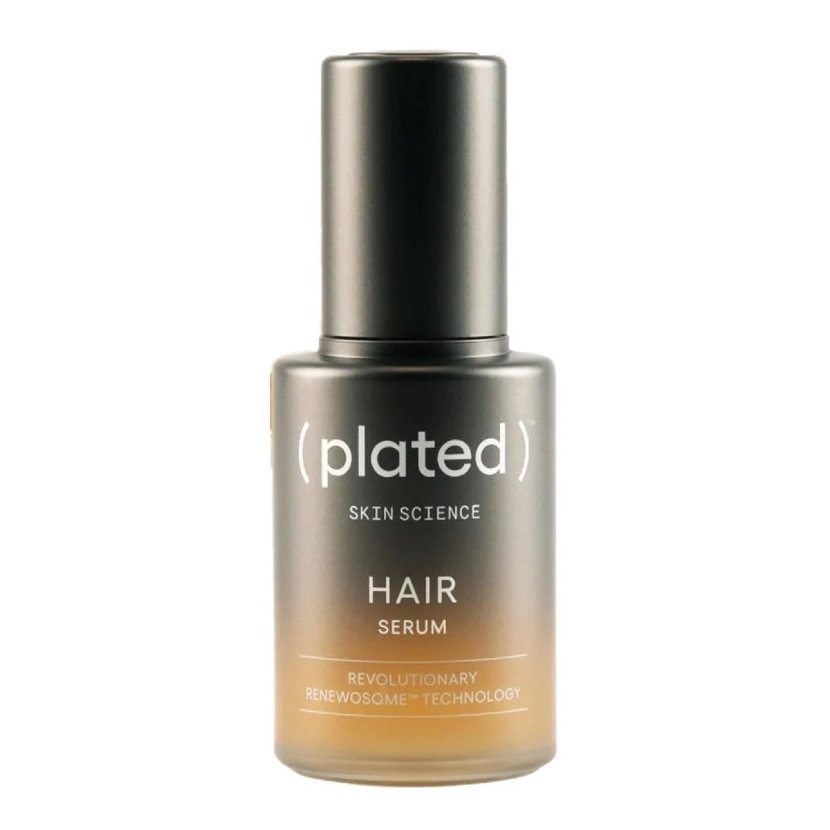
Plated Skin Science
Hair Serum
Plated Skin Science is known for its effective, exosome-based products, like the facial serum that Megan Fox swears by. (I can attest to its soothing and skin-healing powers. Read my full review.) The brand’s scalp and hair serum uses the same exosome technology to boost the appearance of hair density and volume.
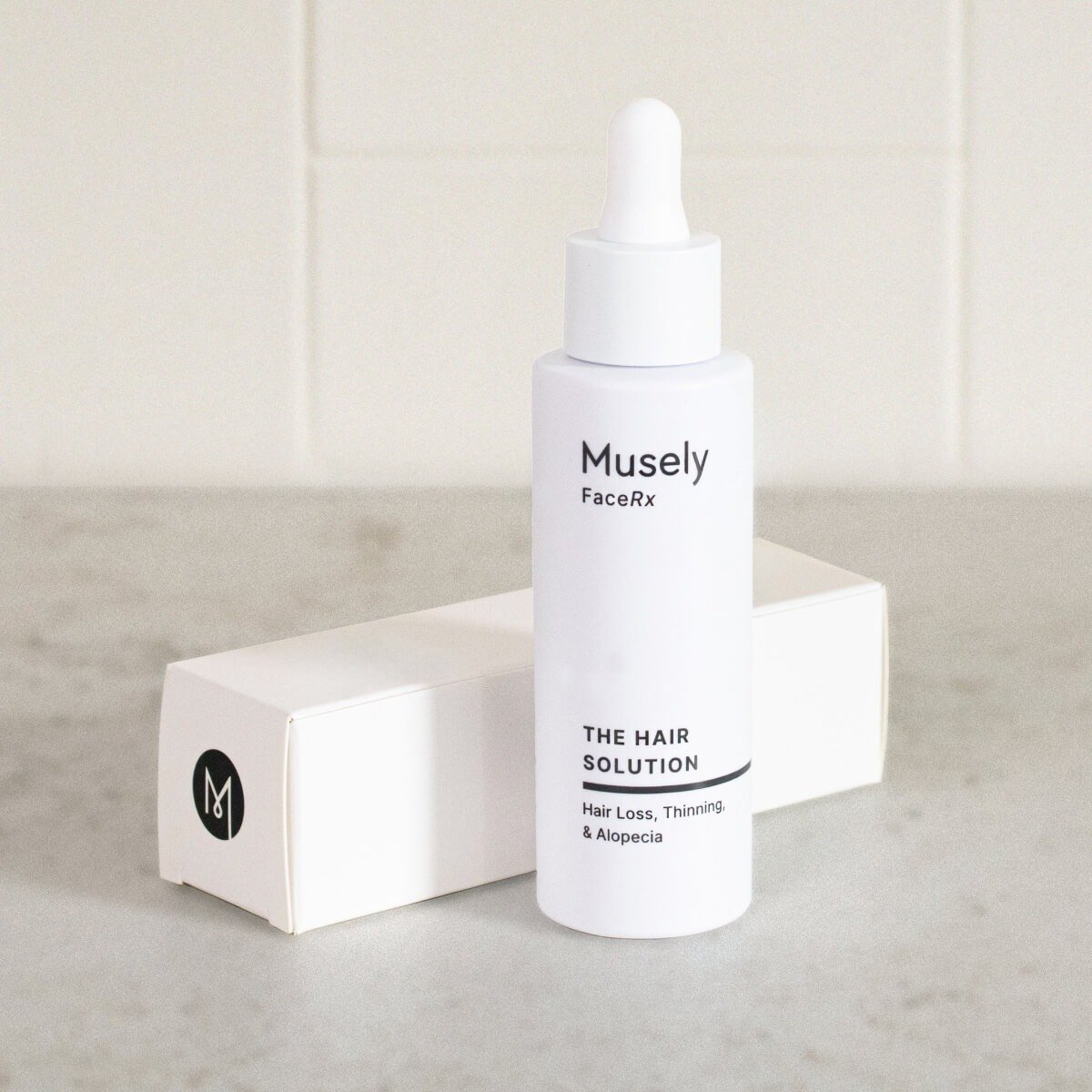
Musely’s dermatologist-developed scalp serum uses exosomes, latanoprost, and caffeine to encourage growth and increase density. I appreciate that it discloses the percentage of the key ingredients used in the formula.
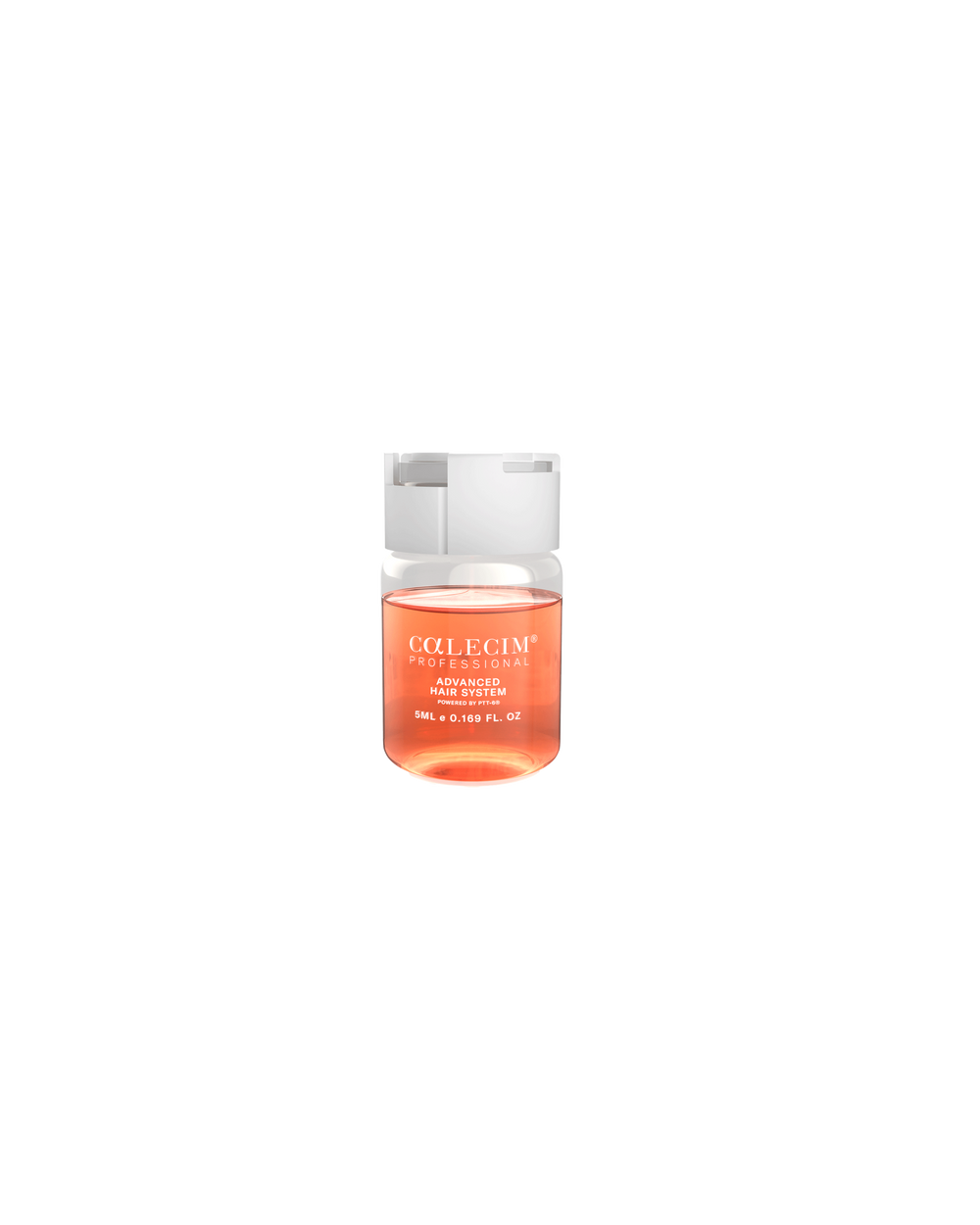
CALECIM Professional
Advanced Hair System
This six-week hair restoration program uses a proprietary complex called PTT-6, which uses growth factors, cytokines, and exosomes to signal the hair follicles to regenerate.
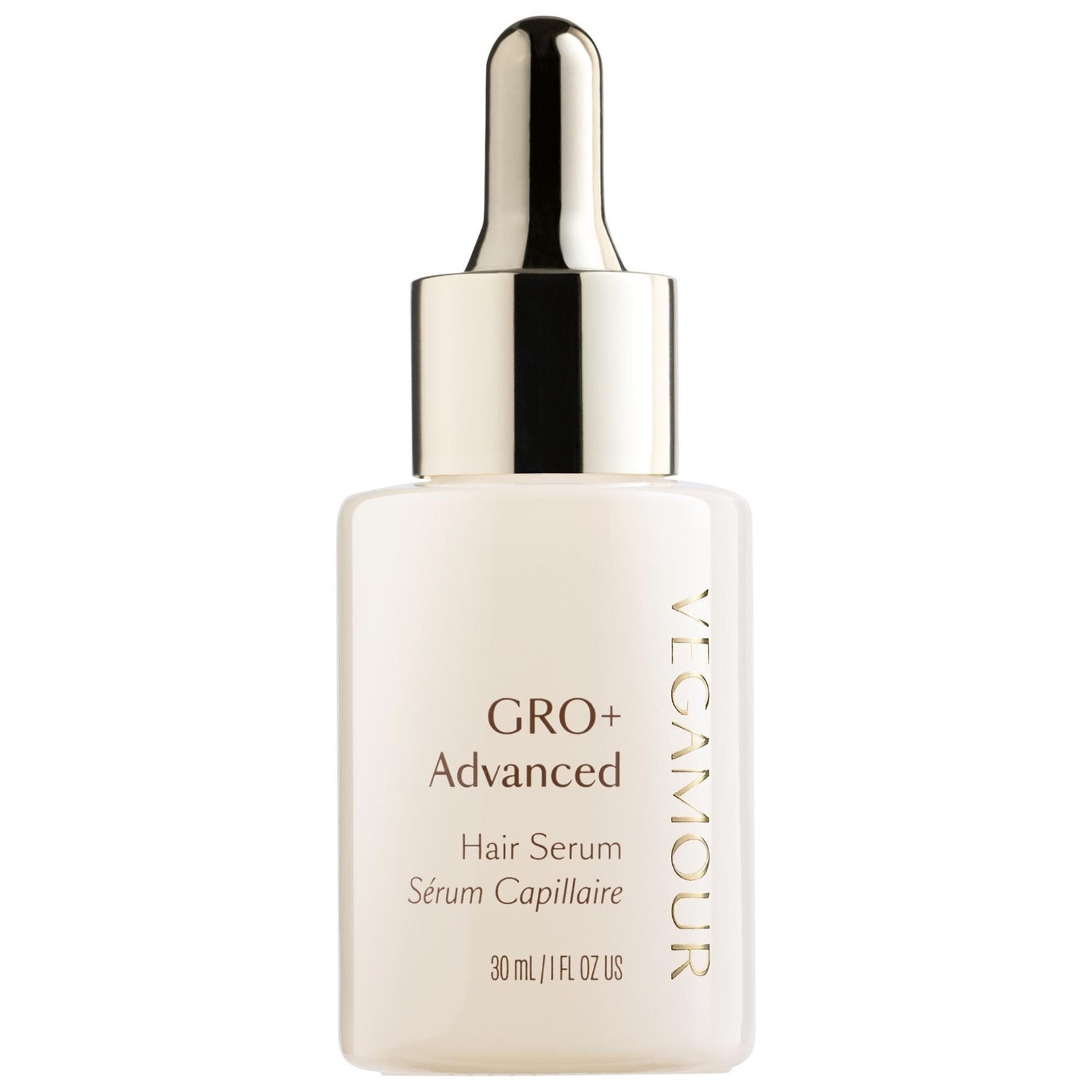
Vegamour
Gro+ Advanced Hair Serum for Severe Signs of Thinning
I have personally seen a big difference in the thickness of my hair since using this serum, but I can’t say for sure whether it’s the plant exosomes found inside or the other beneficial ingredients (or both). Regardless, it worked for me!
Explore More:



